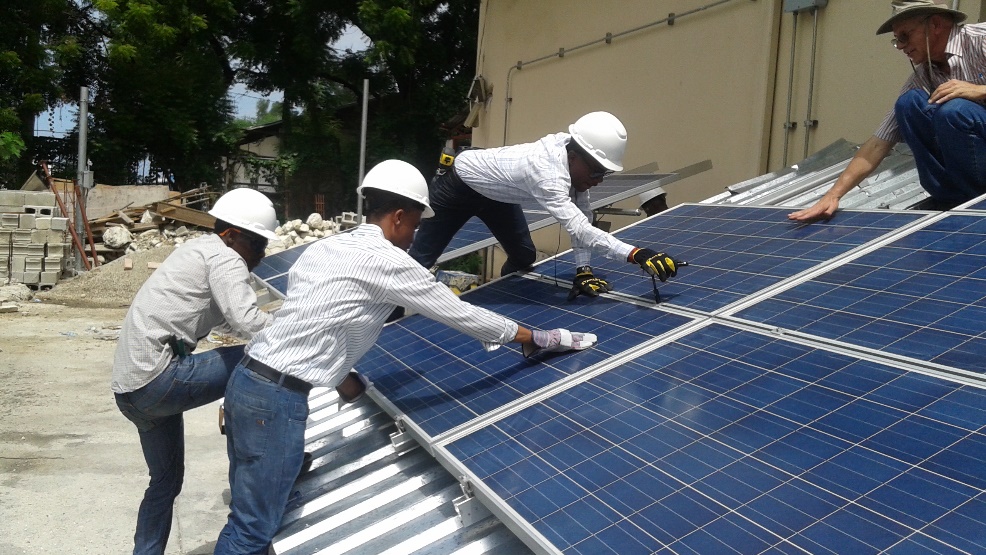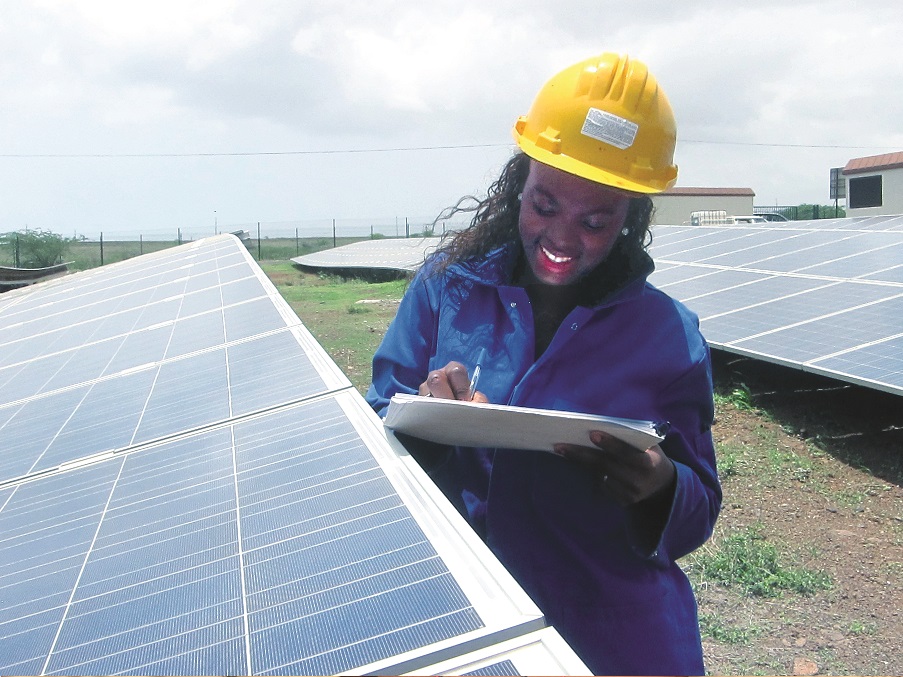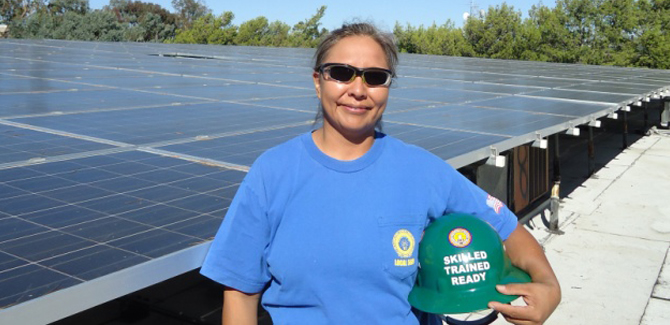-
ECOWAS Certified Solar PV Technician (Off-grid/Mini grid/ Grid-connected) Programme (ECOWAS-CSPVP)

The ECOWAS Certified Solar Photovoltaic Technician Certification (Off-grid/Mini grid/ Grid-connected) Programme is intended for any individuals who want to distinguish themselves from their competition both at the national and regional level by demonstrating their skills and experiences in an examination organised in all ECOWAS member countries. Individuals who are performing system design, installation and maintenance for Government Ministries, Departments and Agencies, utilities, incentive programs, investors and others performing quality assurance of photovoltaic (PV) and code compliance should apply for this programme.
The programme is designed by all 15 ECOWAS member countries to provide protection to the public users of solar systems by gives the certified technicians a national and regional mobility platform and credential for judging the competency of practitioners.
-
ECOWAS Certified Solar System Inspector Programme (ECOWAS-CSPP)

The ECOWAS Certified Solar Photovoltaic Systems Inspector Programme (ECOWAS-CSPVP) is intended for any individuals who are currently working or seeking employment in the renewable energy industry. Individuals who are performing system inspections for Government Ministries, Departments and Agencies, utilities, incentive programs, investors and others performing quality assurance of photovoltaic (PV) and code compliance should apply for this programme.
Inspectors are a key component in ensuring quality renewable energy installations for customers. The new credentials are meant to encourage those who are responsible for inspecting systems to increase their knowledge and learn what to look for when performing their job as it relates to solar technologies.
-
ECOWAS Certified Lead Energy Auditor Programme (ECOWAS-CLEAP)

The ECOWAS Certified Lead Energy Auditor (ECOWAS-CLEAP), is a regionally recognised qualification awarded to persons showing themselves to be competent in the field of energy auditing. This is approved by all 15 ECOWAS member countries for the purpose of Lead Assessor status for persons that are successfully certified.
This particular programme has been developed in conjunction with ECOWAS member countries and is based on the skills and understanding needed by individuals to develop a fully functional energy management system.
-
ECOWAS Certified Energy Project Management Professional Program (ECOWAS-CEMP)

The ECOWAS Certified Energy Management Professional Program (ECOWAS-CEMP) is an in-depth professional certification program for energy managers tailored for the ECOWAS region. This ECOWAS-CEMP being introduced ECREEE (Assuming the role of the ECOWAS Certification Body for Sustainable Energy Skills) in cooperation with ECOWAS member countries for sustainable energy industrial, service and commercial establishments and practitioners interested in being recognised regionally and nationally as energy managers to register for the ECOWAS-CEMP program.
The ECOWAS-CEMP will assist organizations and program administrators in planning and implementing sustainable energy programs and measures in the ECOWAS region. Also, it aims at equipping entities and professionals with the latest technologies and the effective means with solutions to reduce energy consumption in a cost effective approach.
Besides, ECOWAS-CEMP will enable all participants with different educational backgrounds to create a commercially viable energy concept. This helps organization to directly apply what the participants learnt in the program and to use energy efficiently and save money.
-
ECOWAS Certified Wind Energy Technician Programme (ECOWAS-CWETP)

Wind turbine technicians are expected to typically (i) Examine the exterior and physical integrity of wind turbine towers (ii) Climb wind turbine towers to inspect or repair wind turbine equipment (iii) Perform routine maintenance on wind turbines (iv) Test and troubleshoot electrical, mechanical, and hydraulic components and systems (v) Replace worn or malfunctioning components (vi) Collect turbine data for testing or research and analysis (vii) Service underground transmission systems, wind field substations, or fiber optic sensing and control systems.




